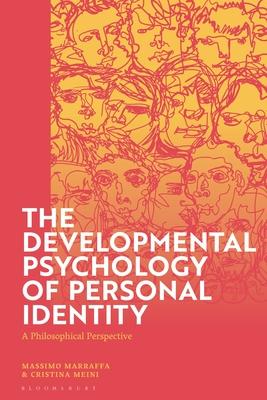Massimo Marraffa and Cristina Meini re-connect the psychology of identity with its philosophical roots in this study. They trace the contemporary problem of the self to John Locke and William James' foundational theories on personal identity. By integrating the philosophy of identity with empirical and neuropsychological research, Marraffa and Meini provide an original synthesis of multidisciplinary conceptions of the self.
The Developmental Psychology of Personal Identity builds on Chomsky-inspired developmental psychology, Jean Piaget's constructivism, Lev Vygotskij's sociocultural perspective on development and John Bowlby's attachment theory. In this theoretical framework, the book draws on the data of the psychological sciences to reconstruct the trajectory of the self as a 'Lockean person' (i.e., as morally responsible agent). The authors link the birth of self-consciousness through the body and emotions to the construction of a narrative self. Their combination of philosophy and cognitive sciences makes an important contribution to multiple disciplines concerned with personal identity. It provokes new routes to understanding identity and self, autobiographical memory, and personality.
Book
The Developmental Psychology of Personal Identity: A Philosophical Perspective
(Write a Review)
Hardcover
$127.78
Massimo Marraffa and Cristina Meini re-connect the psychology of identity with its philosophical roots in this study. They trace the contemporary problem of the self to John Locke and William James' foundational theories on personal identity. By integrating the philosophy of identity with empirical and neuropsychological research, Marraffa and Meini provide an original synthesis of multidisciplinary conceptions of the self.
The Developmental Psychology of Personal Identity builds on Chomsky-inspired developmental psychology, Jean Piaget's constructivism, Lev Vygotskij's sociocultural perspective on development and John Bowlby's attachment theory. In this theoretical framework, the book draws on the data of the psychological sciences to reconstruct the trajectory of the self as a 'Lockean person' (i.e., as morally responsible agent). The authors link the birth of self-consciousness through the body and emotions to the construction of a narrative self. Their combination of philosophy and cognitive sciences makes an important contribution to multiple disciplines concerned with personal identity. It provokes new routes to understanding identity and self, autobiographical memory, and personality.Hardcover
$127.78